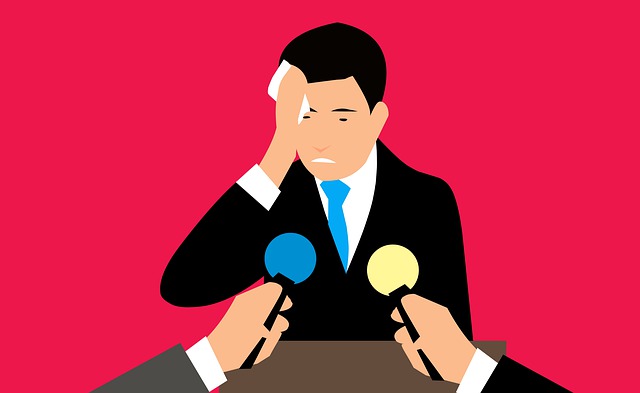Although jitteriness and nervousness share similar symptoms such as restlessness, sweating, and rapid heartbeat, they are different in their causes and effects on an individual. Jitteriness is often a short-term reaction to stimulants or stressful situations while nervousness can be long-term anxiety that affects daily life.
Jittery
(Photo by Nathan Dumlao on Unsplash )

Jittery is a feeling of restlessness or shakiness that can be caused by a wide range of factors. It’s often described as an internal buzzing sensation, and it can manifest physically as fidgeting, trembling hands, or rapid heartbeat.
One common cause of jitteriness is caffeine consumption. If you’ve ever had one cup too many of coffee, you know the jitters that come with it. Other stimulants like nicotine and certain medications can also cause this feeling.
However, there are other causes for jitteriness beyond just stimulant intake. Anxiety disorders and panic attacks often include symptoms such as jitteriness, nervousness and sweating palms.
Jittery feelings might even occur in response to stressful situations like public speaking or job interviews – sometimes referred to as “butterflies in your stomach.” These situations are typically not harmful but could make people feel uneasy for some time before they subside.
If you’re experiencing jitteriness frequently or severely enough to impact your daily life negatively, seeking medical help from a healthcare professional may be necessary – especially if other symptoms such as tremors appear alongside the jitters.
Nervous
(Photo by boram kim on Unsplash )

Nervousness is a common feeling that everyone experiences from time to time. It can be triggered by various situations such as public speaking, job interviews, or even meeting new people. Nervousness is usually accompanied by physical symptoms such as sweating, shaking, and increased heart rate.
The causes of nervousness are often related to fear and anxiety. When we feel unsure about the outcome of a situation or lack confidence in ourselves, it can lead to feelings of nervousness. Additionally, some people may have underlying anxiety disorders that make them more prone to experiencing nervousness.
Coping with nerves can be challenging but there are strategies that can help alleviate the symptoms. Deep breathing exercises and mindfulness techniques are effective ways to calm the mind and reduce physical symptoms like sweating and shaking. Preparation is also key – practicing your presentation or interview ahead of time can help you feel more confident going into the actual event.
While being nervous isn’t always pleasant, it’s important to remember that it’s a normal part of life. In fact, some level of nervousness can actually improve performance in certain situations by increasing focus and motivation. However, if your nerves become overwhelming or interfere with daily activities, seeking professional help may be necessary for managing anxiety levels effectively.
Causes of jitteriness
Jitteriness is a feeling of restlessness and unease that can manifest in physical symptoms such as shaking or trembling. It can be caused by a variety of factors, including stress, anxiety, caffeine intake, medication side effects or underlying health conditions.
Stress is one of the most common causes of jitteriness. When we are under high levels of stress our body releases adrenaline which can cause us to feel shaky and nervous. Similarly, anxiety disorders can lead to feelings of jitteriness as well.
Caffeine is another factor that contributes to jittery sensations because it stimulates the central nervous system leading to increased heart rate and blood pressure. Additionally, certain medications such as asthma inhalers or weight loss pills may contain stimulants that trigger jitters.
Jitteriness may also be a symptom of an underlying medical condition such as thyroid problems or low blood sugar levels. These conditions disrupt hormones balance in your body leading to hyperactive physiological responses that could result in jitters.
There are many things that can cause us to feel jittery but understanding these triggers could mean taking steps towards reducing their impact on our wellbeing
Causes of nervousness
Nervousness is a common feeling that affects everyone at some point in their lives. This can range from mild to severe and may be caused by a variety of reasons, both physical and emotional. One of the most common causes of nervousness is stress. When we experience stress, our bodies release cortisol, which triggers the “fight or flight” response.
Nervousness can also be caused by anxiety disorders such as generalized anxiety disorder (GAD), panic disorder, post-traumatic stress disorder (PTSD), social anxiety disorder (SAD), and obsessive-compulsive disorder (OCD). These conditions are characterized by excessive worry or fear that interferes with daily activities.
Other factors that can contribute to nervousness include caffeine consumption, lack of sleep, hormonal imbalances, certain medications or medical conditions such as hyperthyroidism or heart disease.
There are many different causes of nervousness and it’s important to identify the root cause in order to effectively manage symptoms. Whether it’s through therapy, medication or lifestyle changes such as practicing relaxation techniques like yoga or meditation – there are options available for those struggling with this common condition.
How to cope with jitters?
Jitters can be an uncomfortable feeling that can affect our daily life. Fortunately, there are several ways to cope with jitters and reduce their impact on our well-being.
Firstly, it’s important to identify the cause of the jitters. Are you feeling stressed due to work or personal issues? Is it related to a specific event such as public speaking or an exam? Once you have identified the cause, try to address it directly by finding solutions or seeking support from others.
Another effective way to cope with jitters is through relaxation techniques such as deep breathing exercises, meditation, or yoga. These practices help calm both the mind and body and reduce tension.
Physical exercise is also a great way to alleviate jitters as it releases endorphins which promote feelings of happiness and wellbeing. Going for a walk in nature or engaging in any physical activity that you enjoy can be helpful.
Maintaining a healthy lifestyle by getting enough sleep, eating nutritious foods and avoiding excessive caffeine intake can also help manage jitters more effectively.
Coping with jitters requires self-awareness and taking proactive steps towards managing them. By incorporating these techniques into your daily routine, you can learn how to deal with jittery feelings effectively while promoting greater overall wellness.
How to cope with nerves?
Feeling nervous is a common human experience, but it can be uncomfortable and overwhelming. Here are some tips on how to cope with nerves:
Identify the source of your anxiety: Understanding what’s causing your nervousness can help you address it more effectively.
Take deep breaths: Deep breathing exercises can help calm your body and reduce stress levels.
Practice mindfulness: Mindfulness involves being present in the moment without judgment or distraction. It can help you stay grounded and focused during stressful situations.
Visualize success: Imagine yourself succeeding at whatever task is making you nervous, whether that’s giving a presentation or going on a first date.
Seek support: Talking to someone about your worries can be helpful, whether it’s a friend, family member, or therapist.
Remember that feeling nervous is normal and natural – everyone experiences it at some point in their lives! By practicing these coping strategies, you’ll be better equipped to manage feelings of anxiety when they arise.
help alleviate some of the discomfort associated with being jittery.
How do I stop feeling jittery and nervous?
Feeling jittery and nervous can be a frustrating and uncomfortable experience. Fortunately, there are several strategies you can use to calm yourself down and reduce these feelings.
Firstly, try taking deep breaths in through your nose and out through your mouth. This simple technique helps to slow down your heart rate and relax the body.
Another effective method is progressive muscle relaxation. Starting from the feet upwards or vice versa, tense each muscle group for around 5 seconds before releasing them completely. Doing this gradually relaxes every part of your body.
You may also want to consider getting some exercise or practicing meditation whenever you feel jittery or nervous. Both activities help to decrease stress levels by releasing endorphins – hormones that make us feel good.
It’s important to take care of yourself by eating well-balanced meals throughout the day, reducing caffeine intake (coffee/tea/soda) & alcohol consumption if possible as they stimulate anxiety symptoms; getting enough sleep; drinking plenty of water; avoiding smoking/excessive sugar intake which can cause jitters/nervousness too!
By using these techniques frequently, you’ll soon find that feeling jittery or nervous becomes less frequent – allowing you more freedom in life!
Drawbacks of being jittery and nervous
Being jittery and nervous can have a significant impact on both our personal and professional lives. Some of the drawbacks associated with these conditions include:
- Difficulty concentrating: When we’re jittery or nervous, it’s challenging to focus on tasks at hand. We may find ourselves easily distracted by our racing thoughts, making it difficult to complete even straightforward tasks.
- Physical symptoms: Jitteriness and nervousness often manifest physically in the form of shaking hands or a racing heartbeat. These physical symptoms can be uncomfortable and make us feel self-conscious.
- Social anxiety: Being jittery or nervous can also lead to social anxiety, making it challenging to interact with others in social situations or public speaking engagements.
- Negative impact on relationships: Our loved ones may find it difficult to understand why we’re feeling so anxious all the time, which can put strain on relationships.
- Impaired performance: If left unaddressed, chronic jitters and nerves can significantly impair our ability to perform well academically, professionally or athletically.
It’s essential for anyone experiencing ongoing feelings of anxiety or persistent jitters to seek help from a healthcare provider who specializes in treating mental health disorders such as anxiety disorders.
Featured Image By – Donate PayPal Me from Pixabay








